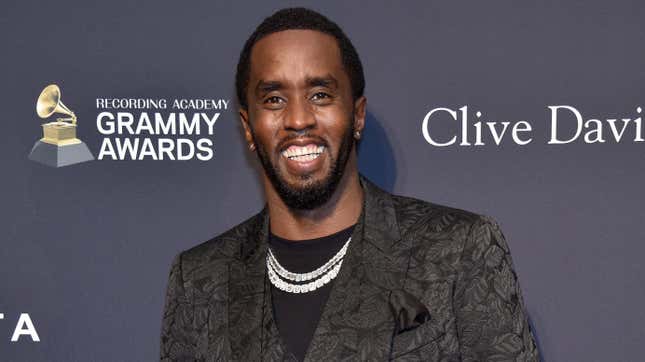
Sean Combs has entered the “Love Era.”
If not evidenced by the literal legal changing of his middle name, then perhaps the best way to convince you of that is by taking a look into the latest issue of Vanity Fair.
In it, you’ll find a thorough profile of the September cover star, perceptively penned by Tressie McMillian Cottom. Combs, who recently wiped his Instagram clean save for three new posts referencing the VF interview reintroduced himself to the world on Tuesday with an image that read: “Welcome to the Love Era.”
“I’ve spent the last 10 years in and out of a dark place, struggling to find the meaning in everything happening to me and around me,” he captioned in a subsequent post. “I stepped away from music, I moved across the country, and tried to escape the heartbreak I was feeling. I needed to get off the floor, get up and get closer to GOD! And really discover my reason for being here!”
And what is that reason you might ask? Well, for Combs, that reason has to do in large part, with saving the Black race. Whether that expresses itself through myriad personal or professional exploits, like an unspecified five year plan for the culture and new music label (more on that later), as he told Cottom—the main goal is to ultimately reach a higher purpose for both himself and for his people.
“I feel like God sent me, God, put on my heart, ‘What’s your purpose?’ I was looking at all these things, it’s preachers and just different people talking about purpose because I was like, man, purpose is something deep. Have I really found my purpose? I know I’m making money and I’m successful and I’m changing the game so called, but is that my purpose? And then I really prayed on it and God told me, ‘Your purpose is to play a part in saving the Black race.’
Hmm. While I’m not going to cast doubt on what God told Brother Love, I can’t help but wonder—given his affinity towards programs and principles that espouse the dreams and desires of life fueled by Black capitalism instead of true liberation derived from radical reimagining—what exactly does “saving the Black race” look like? What does that feel like? What are we saving it from, specifically and what or where are we delivering it to? More importantly, when it comes to this five year plan—what’s the end goal? I don’t mean to sound like a cynic but these are important questions that I’d like to have answered before I sign up for anything.
And before you go labeling me a “hater” or worrying about the handful of other critics who may look twice at Combs’ newfound purpose just as I have, you can rest assured the artist formerly known as P. Diddy has no qualms about his ecclesiatic-esque endeavor.
Per Vanity Fair:
I can’t get caught up in that. I know where my heart is at, and you can’t just do it alone with just Black people. You got to have all types of allies. And that’s one thing I’m good at, I’m good at being a unifier, but I’m not going to be in a room with other tribes that protect themselves and make sure that they straight and not make sure that we straight. But also, I’m not a politician, I’m not trying to be the king or the dictator of somebody. I’m a boy from Harlem that came here to make a change. We all have our story.”
Speaking of story, the next chapter of Combs’ life will revolve around the revival of his music label. Not Bad Boy specifically (because we all know how things got down over there), but a brand new one with a brand new business model solely focused on R&B.
“Yeah, all R&B label, because I feel like R&B was abandoned and it’s a part of our African American culture,” he explained to Cottom. “And I’m not signing any artists. Because if you know better, you do better. I’m doing 50–50 partnerships with pure transparency. That’s the thing. [The new label is so that] we can own the genre; we don’t own hip-hop right now. We have a chance to—and I’m going to make sure that—we own R&B.”
The full interview with Sean “Love” Combs is available in its entirety in the September issue of Vanity Fair and on vanityfair.com.

